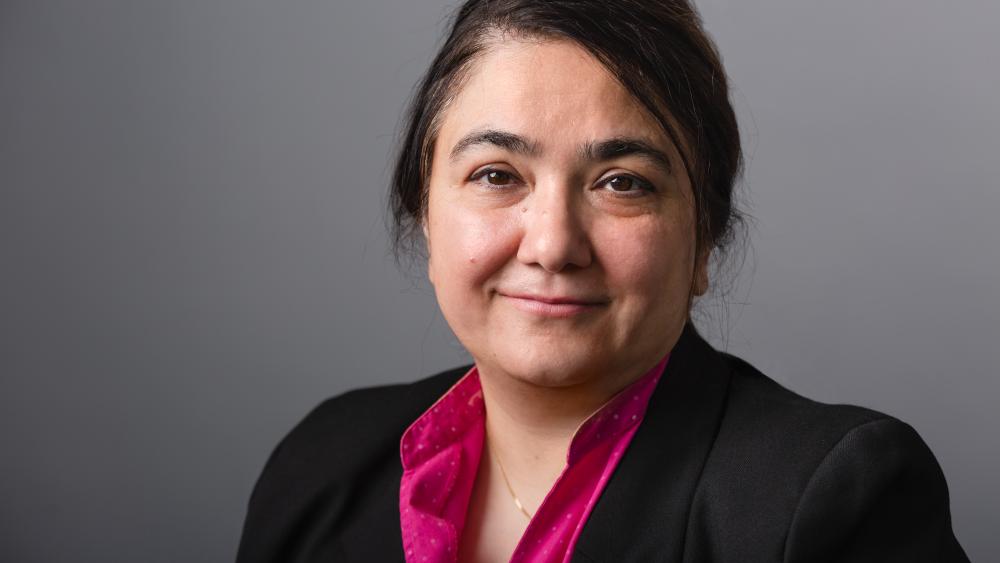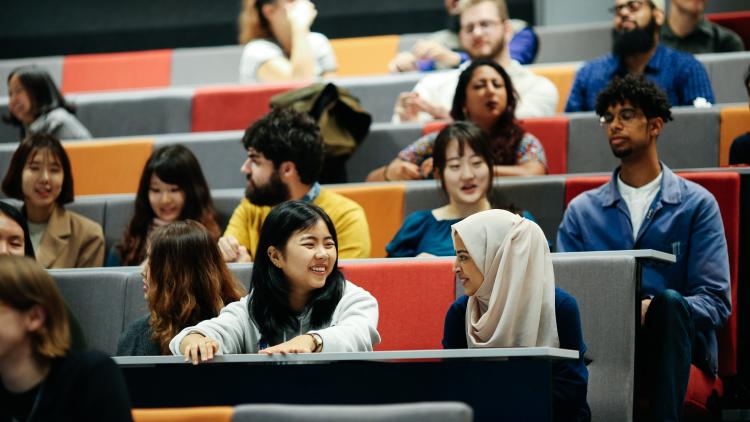Dr Alia Amir

Key information

- Roles
- School of Languages, Cultures and Linguistics Research Associate
- Email address
- aa235@soas.ac.uk
Biography
Alia Amir is a Research Associate at SOAS University of London as well as an Associate Professor in English Linguistics at Halmstad University.
She is also a visiting academic scholar at Loughborough University. Before joining SOAS this year, she has been teaching English linguistics, sociolinguistics, and training English language teachers since 2009 in Sweden including Stockholm University, Uppsala University, Linkoping University to name a few.
She has also been on short visits to three Turkish Universities namely: Muğla Sıtkı Koçman Üniversitesi, Cukurova University and Hacettepe University as well as to INALCO (Institut national des langues et civilizations orientales) in Paris through Erasmus for mobility funding. She has also been an English language teacher trainer in Pakistan.
Having been raised in a Pakistani-Kashmiri household, and growing up in Jeddah for a number of formative years where several languages were used in parallel at one communicative setting, growing up - she was not much aware of language boundaries, or the notion of keeping languages separate in her childhood, until, as an adult, she started noticing and thinking about how language policies differ in all multilingual polities at the macro and micro-levels, how language as a tool is used and can be used for inclusion and exclusion, and how histories of a society are intertwined in their language use over time.
While doing research on the English language policy of the British Indian period (Amir, 2008), languages of the Mughal dynasty (Amir, 2020), present-day Pakistan, and language policing in the interactional micro-level policy in interaction (Amir, 2013) in Sweden and Turkey, she grasped the ecology and nature of fluidity of all living languages in contact. She has lived in Jeddah, Peshawar, Karachi, Izmir, Ankara, Linkoping, and Stockholm. Switching between languages in her daily life as a norm, her research informs policymakers and stakeholders about segmented hierarchical language practices which stem from monolingual, colonial ideologies of restricting the use of other languages in the second/ foreign language classroom context.
Key publications
- Amir, A. (2013) Doing Language Policy: A Micro-Interactional Study of Policy Practices in English as a Foreign Language Classes. Studies in Language and Culture No 23. Linköping: Linköpings universitet.
- Amir, A. (2013). “Self-policing in the English as a foreign language classroom.” Novitas-ROYAL 7, (2) 84- 105
- Amir, A. & Musk, N. (2013). “Language policing: micro-level language policy-in-process in the foreign language classroom.” Classroom Discourse 4 (2), 151-167
- Amir, A. & Musk, N. (2014). “Pupils' language policy: Micro-interactional insights from the English as a foreign language classroom.” Journal of Applied Language Studies 8 (2), 93-113
- Amir, A. (2015) Examining English-only in the EFL classroom of a Swedish school: A conversation analytic perspective. In: Seedhouse, P. & Jenks, C (eds.): International Perspectives on ELT Classroom Interaction. Palgrave Macmillan.
- Huq, R. & Amir, A. (2015). ''When the Tokens Talk: IRF and the Position of Acknowledgement Tokens in a Teacher-Student Talk-in-Interaction". Novitas-ROYAL 9, (1), 60-76
- Amir, A. (2020, 10-13 December). An introduction to Conversation Analysis for Pakistani languages. 12th ICOSRESSE International Conference of Strategic Research on Scientific Studies and Education held between 10-13 December 2020. Webinar.
- Atar, C., & Amir, A. (2020, 10–13 December). A sociolinguistic analysis of English textbooks in Sweden (p. 397-409). 12th ICOSRESSE International Conference of Strategic Research on Scientific Studies and Education held between 10-13 December 2020. Webinar. ISBN: 978-625-7148-10-8
- Yatağanbaba, E. Amir, A. & Yıldırım, R. (2022). An examination of teachers’ language policing in EFL young learner classrooms in Turkey. Turkish Journal of Education, vol. 11: 3, ss. 183-200.
- Jawhar, S., Amir, A., Huq, R. & Stewart, S. (in review). Collaborative problem solving and literacy practices: A Conversation-analytic case study of children’s pre-Roblox gaming interaction.
- Atar, C., & Amir, A. (in review). Pre-Service Teachers Knowledge and Beliefs about Developmental Dyslexia in Turkey: Implications for English language teaching.
Research interests
Her research lies at the intersection of Sociolinguistics and Applied Linguistics with a focus on micro and macro level language policy and practices. She employs qualitative research methods including interviews, linguistic landscaping, discourse analysis, and conversation analysis.
During her PhD project entitled ‘Doing Language Policy: A Micro-Interactional Study of Policy Practices in English as a Foreign Language Classes,’ she created a prototype of language policing in interaction, that is, what does it look like in spoken communication when an interlocutor is stopped from speaking, what is the impact on communication and whether such practices are fruitful and aligned with the aims of language teaching.
The areas of her research encompass specifically the language policy and practiced policy of Pakistan, Turkey, British India, Sweden, and United Kingdom. Her current research projects are focused on Pakistani languages and culture including culinary practices, music, and literature in Europe especially London and Stockholm. The languages she is specifically interested in are Pakistani and Kashmiri languages - including - but not limited to Urdu and Punjabi/ Potohari/ Hindko.
She is an avid Gulab Jamun and Ras Malai connoisseur – besides being open for PhD supervision for above-mentioned topics, she is happy to discuss other ideas as well.
Key Topics
Multilingualism, Code-switching, and Language Policy.


